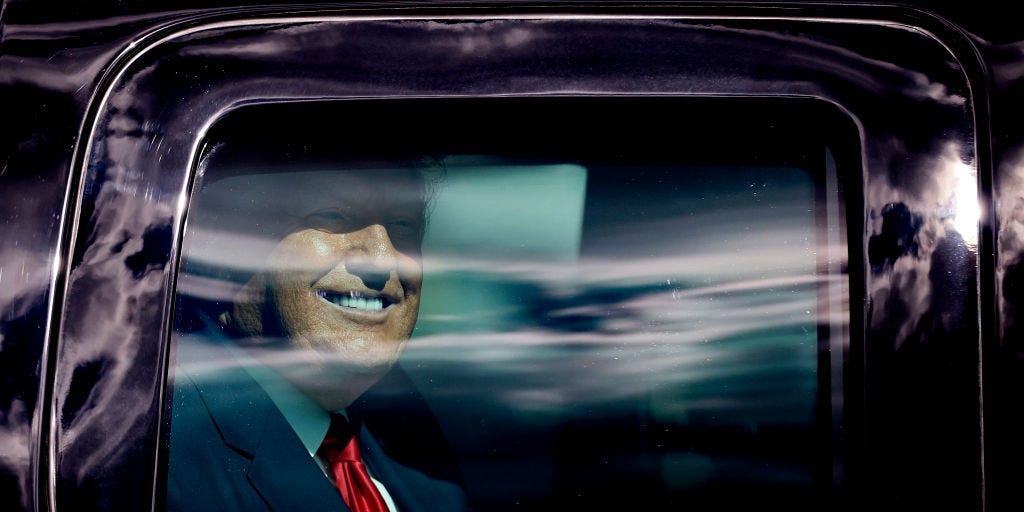- The Jan. 6 committee recently drew attention to Donald Trump's postelection fundraising efforts.
- Analyzing Trump's presidency, a fascism expert argues he tried to use the office to make money.
- The historian Ruth Ben-Ghiat described Trump to Insider as a "dedicated" and talented "grifter."
When looking back on former President Donald Trump's time in office, Ruth Ben-Ghiat sees someone who pursued a unique goal among his predecessors, one requiring extreme discipline and dedication from the unlikely leader.
"Trump's aims as president were totally different from any other president, Republican or Democrat," Ben-Ghiat, a historian at New York University who is an expert on fascism, told Insider. "His aims were autocratic in that he wanted to turn public office into a vessel of making money for himself — to have private profit off of public office."
With the House committee hearings over the January 6, 2021, Capitol riot prompting renewed scrutiny over Trump's final days in office, Ben-Ghiat spoke with Insider's Charles R. Davis about the insurrection, its ongoing aftermath, and the divisive former president at the center of it all.
This week, in the congressional committee's second televised hearing, lawmakers focused on Trump's massive fundraising efforts following the 2020 US presidential election, in which his campaign sent emails to millions of supporters claiming "the left wing mob" was threatening the integrity of the election and encouraging people to "step up" and "fight back" by donating.
Investigators say Trump's lies about voter fraud ultimately resulted in $250 million in donations from Trump supporters following Joe Biden's victory. Most of the money raised ended up in a PAC that made significant contributions to pro-Trump organizations and businesses, the panel said.
"So there was this grift going on," Ben-Ghiat said. "He was extremely disciplined in grifting and in trying to use the presidency to make money."
But Ben-Ghiat said the millions of dollars that Trump was able to pull in from small-level donors shouldn't be all that surprising.
"The sad thing is that autocrats can be very loved by their followers, and people genuinely love Trump. He has a real personality cult," she said. "But they despise their followers and they use them. And that's where him grifting off of his followers — because he is not grifting off of Democrats, he's grifting off of his followers, he's bilking his own followers."
Ethics experts, journalists, and others have long noted evidence that Trump had a presidential penchant for moneymaking. The Washington Post found in December 2019 that Trump spent nearly a third of his days in his first three years as president at a Trump-branded property.
Trump's business practices have been under scrutiny since before he won the presidency. While campaigning the first time, Trump was facing three lawsuits accusing him of defrauding students of his real-estate training program Trump University; after winning the presidency, he settled the claims for $25 million.
Ben-Ghiat described grifting as Trump's "model."
"And so if someone who is authoritarian-minded comes into power, the economy — our daily life is — is not advantaged," she said. "It's disadvantaged because they are not there for the public welfare. They're not there for public well-being. They're there to get rich for themselves and their clan."
Ben-Ghiat said Trump behaved like an autocrat in other ways, describing him as a "superbly disciplined and capable" propagandist.
"He was tweeting over 120 times a day," she said, adding that when it came to things "autocrats care about, Trump was extremely disciplined at doing those things."
